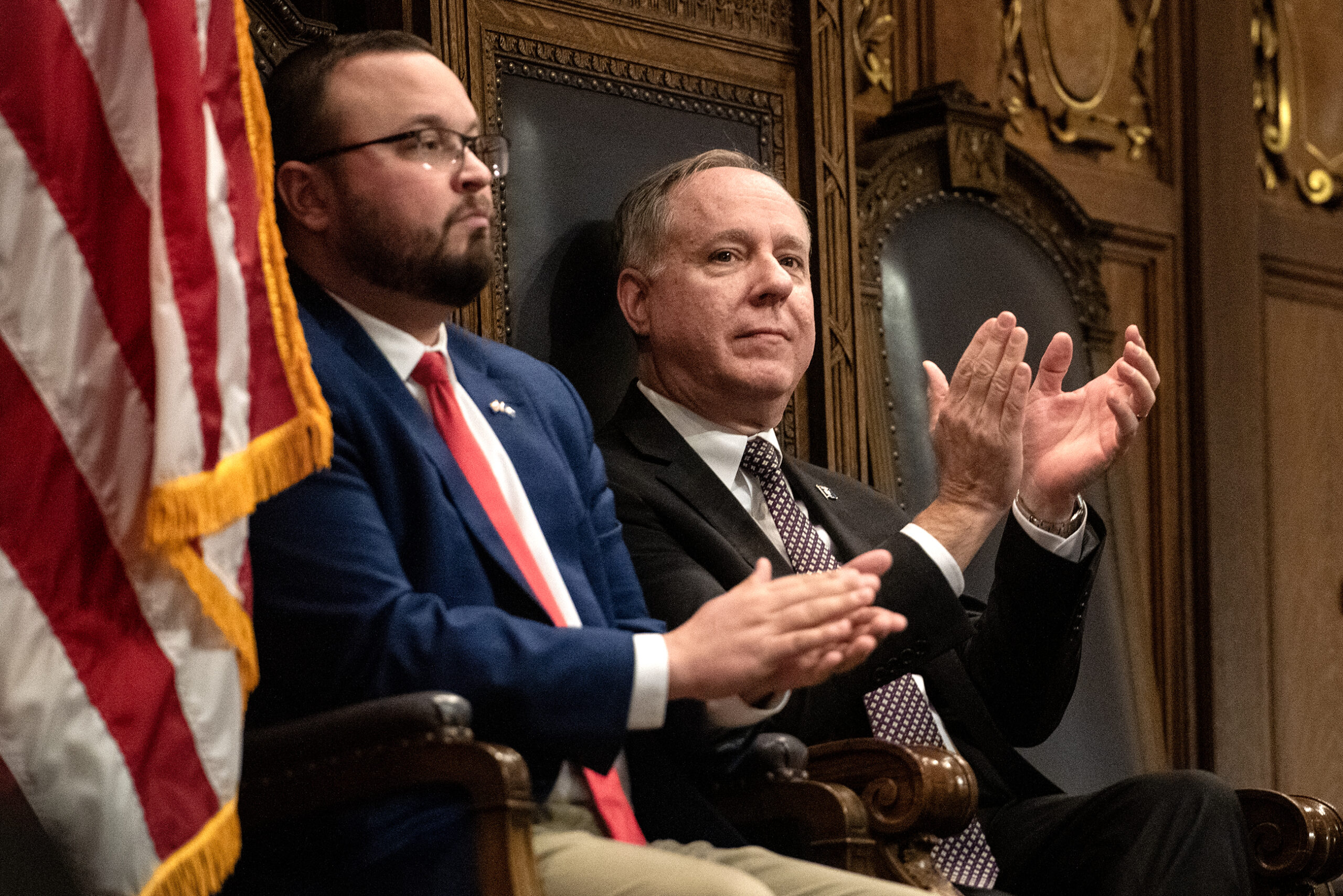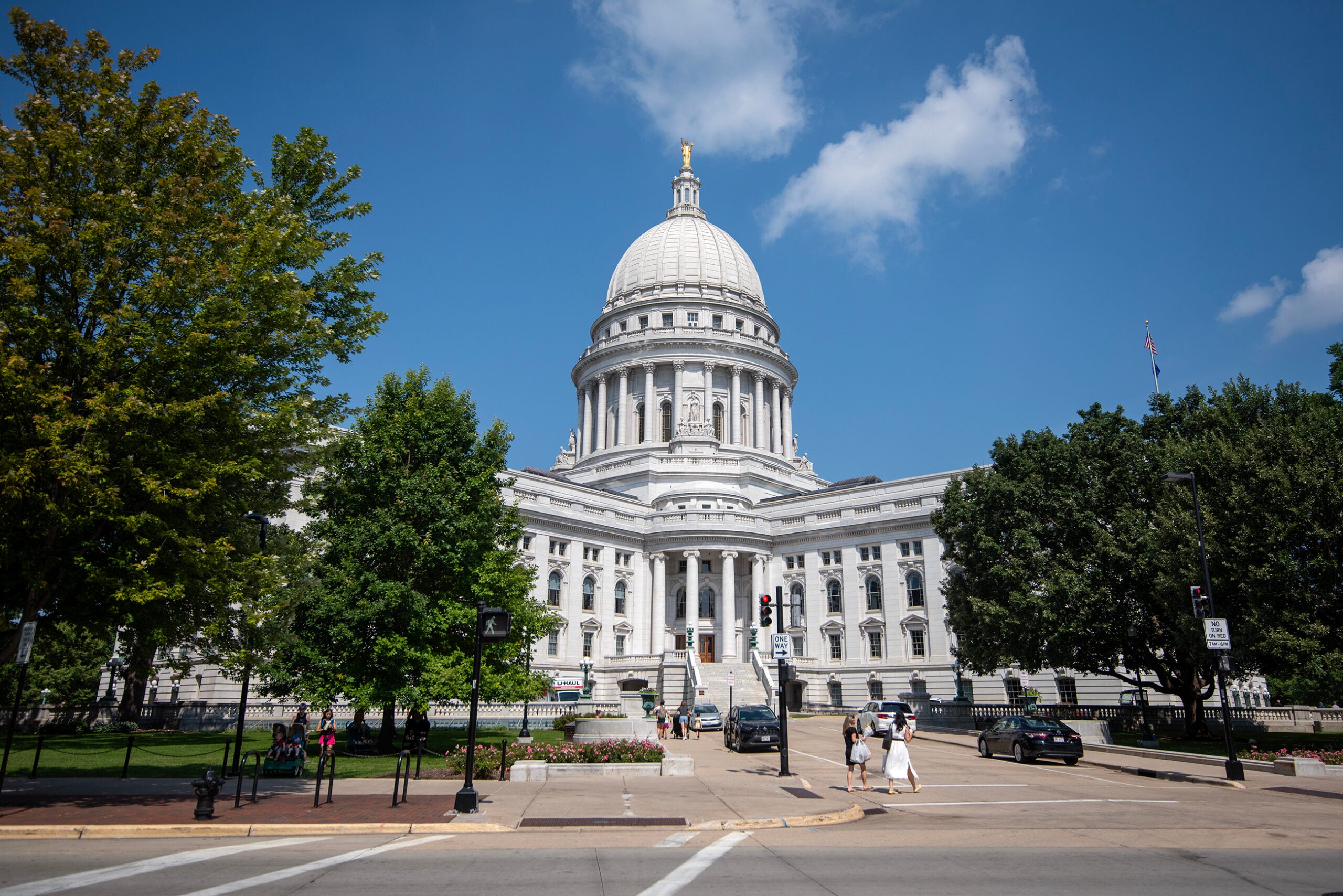Gov. Scott Walker weighed in Tuesday on a package of bills passed by state lawmakers last week, appearing to indicate he plans to approve at least a handful of the measures.
In a Facebook update and e-mail newsletter, Walker said he is evaluating the extraordinary session bills to see if they promote transparency, accountability and stability and protect taxpayers.
He indicated several proposals met those criteria, including a bill that would limit Gov.-elect Tony Evers’ power over state work requirements for benefits like Medicaid and food stamps.
News with a little more humanity
WPR’s “Wisconsin Today” newsletter keeps you connected to the state you love without feeling overwhelmed. No paywall. No agenda. No corporate filter.
The governor also signaled support for legislation that would require the Evers administration to track and issue reports on convicted criminals who have been pardoned by the governor.
Walker also argued the merits of a bill that would mandate new online sales tax revenues be used to lower property taxes and a plan that would give state lawmakers authority over how the state spends proceeds from legal settlements.
The extraordinary session was initially expected to focus on a roughly $70 million tax incentives package for consumer products company Kimberly-Clark Corp. The state Senate never called that bill for a vote, due to insufficient support among lawmakers. Walker said he is hoping to come up with a solution independent of the Legislature before he leaves office.
“Even though the Senate failed to take up that legislation, I am still focused on finding a way to keep these jobs here in Wisconsin,” Walker said. “I hope to have some good news to share this week.”
The governor’s position on other, arguably more controversial, legislation passed during the extraordinary session remains unclear.
The measures, passed mostly along party lines last week, do a number of things, including place limits on the powers of the incoming governor and attorney general-elect. Under the bills, Evers would not be able to approve the state’s withdrawal from a multi-state lawsuit challenging the federal Affordable Care Act, something he campaigned on doing.
Evers would also have less power to change Wisconsin’s voter ID law.
A number of opponents say these changes to executive power amount to a power grab by the GOP-controlled Legislature, but Walker refuted that in his post.
“Let’s set the record straight — the new governor will still have some of the strongest powers of any governor in the nation if these bills become law,” Walker wrote. “He will have the power to veto legislation and he will have some of the broadest line-item veto authority of any governor in the nation.”
The governor also outlined Evers’ future powers to appoint cabinet members, present his version of the state budget and pardon convicted felons.
Walker also defended 82 appointments approved by the Senate, saying the vast majority had been sent to lawmakers for approval months ago.
Another high-profile bill passed during the extraordinary session would limit early voting in Wisconsin. Critics have said they plan to challenge that measure in court if it is signed by Walker.
Walker has six days, excluding Sundays, after receiving the bills to act on them. According to state Senate staff, Walker had yet to call for the bills as of Tuesday. He has until Thursday, Dec. 20 to do so.
Wisconsin Public Radio, © Copyright 2026, Board of Regents of the University of Wisconsin System and Wisconsin Educational Communications Board.







